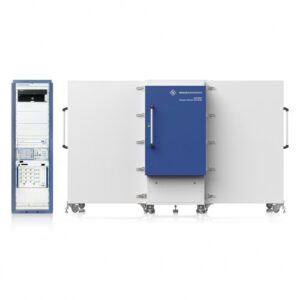Delta Electronics, Inc. (“Delta”), a global provider of IoT-based Smart Green Solutions, today announced it has achieved double “A” scores in the 2023 Climate Change and Water Security reports of CDP for the third time. This year’s double “A” score was granted to only 61 companies out of over 21,000 worldwide based on their superior contribution to climate change and water security challenges. Delta’s recent key climate change and water security endeavors include: the implementation of an internal carbon pricing (ICP) mechanism since 2021 to accelerate carbon reduction initiatives, the successful 13.5% YoY reduction in its Scope 1 and 2 greenhouse gas (GHG) emissions*, the increase in the proportion of renewable electricity used in its global operations to 63%**, and the reduction in its water withdrawal and water discharge by over 4% YoY***.
Jesse Chou, Delta’s Chief Sustainability Officer, said, “CDP honoring Delta’s climate change and water security endeavors with top scores for the third time is a major milestone for us. In 2023, Delta became a member of The Taskforce on Nature-related Financial Disclosures (TNFD) Forum and completed the first biodiversity risk assessment of Delta’s sites. In January of this year, Delta also became an early TNFD adopter. Externally, we have incorporated our climate transition plan into our Annual Shareholders’ Meeting and quarterly investor conferences agendas. Internally, we have completed a GHG inventory for 15 categories under Scope 3 to identify key areas for future emissions reduction. Hence, we look forward to collaborating closely with our value chain partners to achieve our ultimate Net-zero SBT goal by 2050.” Delta has been actively implementing climate change governance. Since 2021, Delta has included the achievement of its percentage of renewable electricity in its senior executive performance indicators. Delta estimates it surpassed its 2023 renewable electricity usage target, reaching over 70% in its global operations comes from renewable sources, with the respective figure exceeding 80% in its Taiwan operations. In 2021, Delta also implemented an ICP scheme of US$300 per metric ton of CO2 emissions, which is invested in energy-saving and carbon reduction projects, as well as in the development of carbon-negative technologies and low-carbon innovation, contributing to the company’s progress toward RE100 and Net-zero SBT. In terms of biodiversity, Delta has collaborated with the National Museum of Marine Science & Technology to establish the Asia’s first zero-carbon coral conservation center. Through the Task Force on Climate-related Financial Disclosures (TCFD) framework, Delta assesses climate change risks and opportunities, translating them into operational strategies and actively exploring green opportunities such as electric vehicles, energy storage, and hydrogen energy. Regarding water security management, although Delta is not a heavy water user, the Company has established strategic goals and methodologies, implementing them in daily operations. In 2022, Delta conducted a water risk assessment for its global sites and formulated a water resource policy across the entire organization. The Company also assessed its tier-1 suppliers engaged in ongoing business transactions and incorporated the assessment results into decision-making. In 2022, Delta achieved a 12.8% YoY reduction in its global water productivity intensity, with its total water withdrawal and water discharge decreasing 4% YoY despite the higher revenue delivered. CDP’s annual assessment and scoring process is recognized as an important standard for environmental transparency. In 2023, more than 740 investors with over 136 trillion in assets and over 300 major procurement organizations with a combined spending of 6.8 trillion requested companies to disclose information about their environmental impacts, risks, and opportunities through the CDP platform. In this latest CDP reports, more than 21,000 companies to participated the assessment, the highest number ever recorded. Delta has been included in the CDP A List for Water Security Management for four consecutive years and has received leadership scores in the Climate Change category for seven years. Notes: (*): Achieved in 2022. Performance in 2023 to be disclosed later this year. (**): Achieved in 2022. Performance in 2023 to be disclosed later this year. (***): Achieved in 2022. Performance in 2023 to be disclosed later this year. Note: Delta has established a Net Zero long-term goal, aiming to reduce Scope 1+2+3 greenhouse gas emissions by 90% compared to the 2021 baseline by the year 2050. Additionally, in alignment with a 1.5-degree reduction pathway, Delta has set new short-term targets. By 2030, it aims to reduce Scope 1+2 emissions by 90% compared to the 2021 baseline, and Scope 3 emissions by 25% compared to the 2021 baseline, exceeding the SBTi 1.5°C reduction pathway requirement of 42% reduction in Scope 1+2 emissions by 2030. -Scope 1: Direct emissions from sources owned or controlled by the organization (such as diesel, gasoline, natural gas, etc.). -Scope 2: Indirect emissions from the purchase of electricity by the organization. -Scope 3: Indirect emissions from the organization’s value chain, including upstream and downstream activities.
DELTA ELECTRONICS NETHERLANDS BV
Zandsteen 15
2132 MZ Hoofddorp
The Netherlands
Wu Judy
Phone : +31 (0)20 655 09 06 / 31(0) 611-581-859
jwu@deltaww.com


